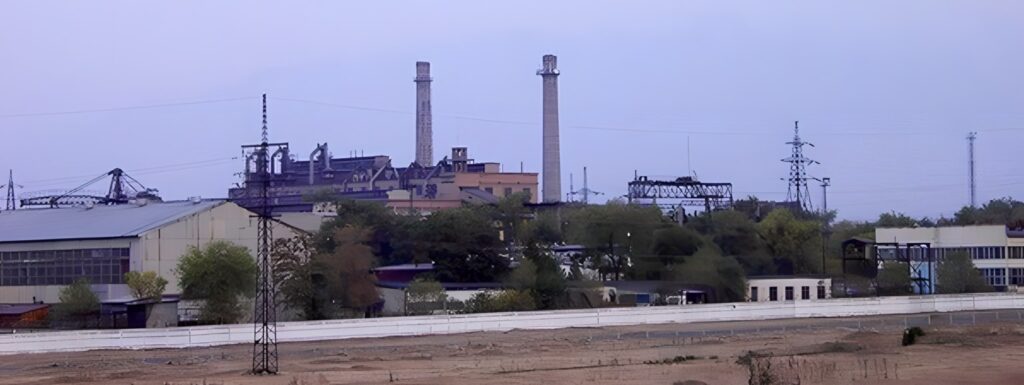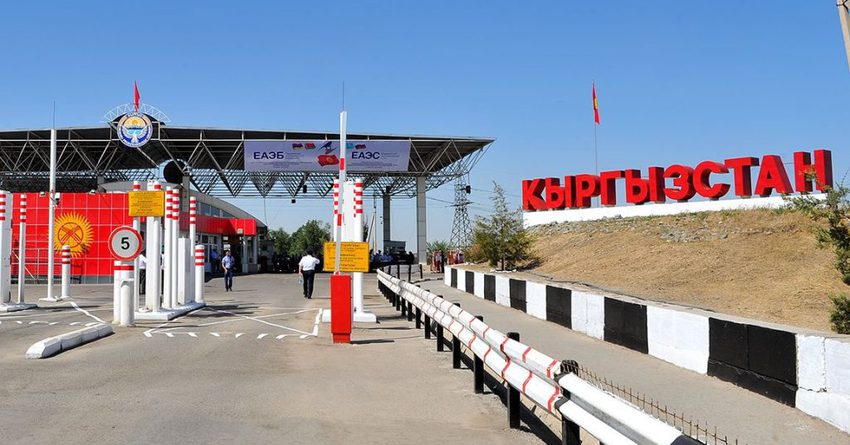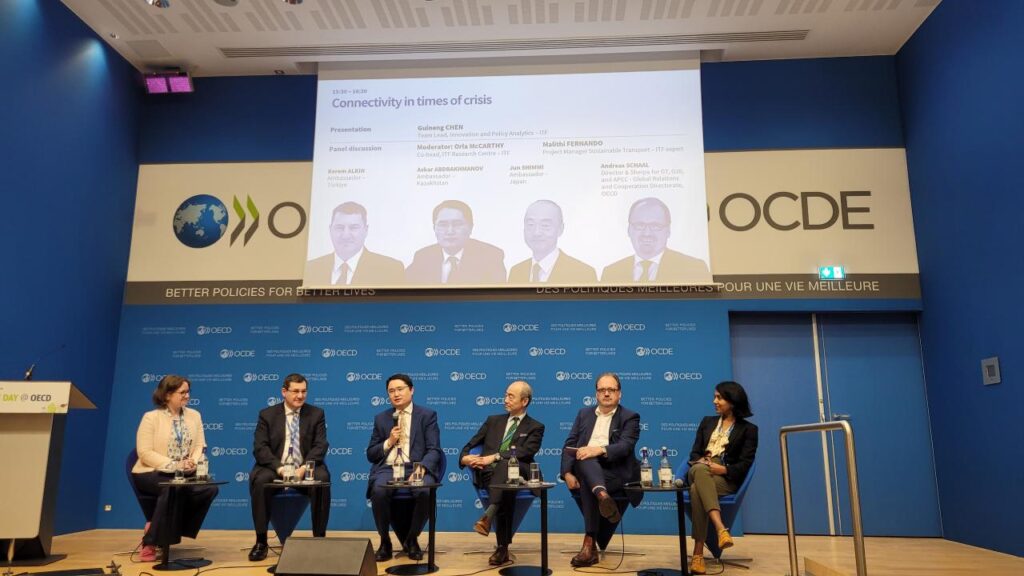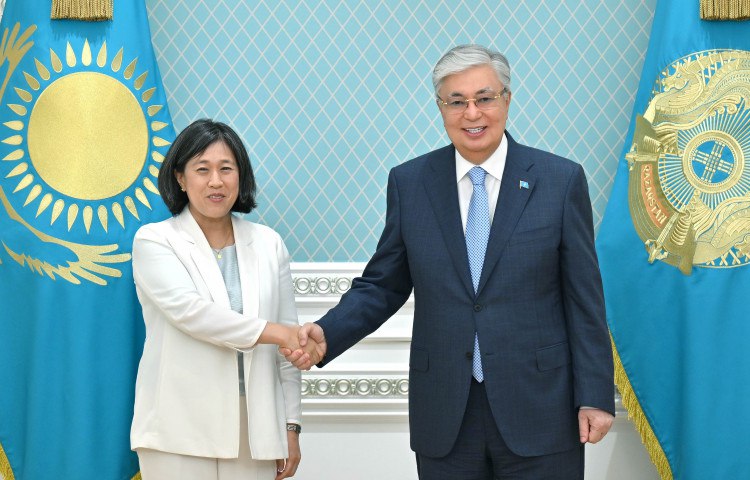Viewing results 931 - 936 of 1357
Kazakhstan's minister of national economy, Nurlan Baibazarov, has announced that the country is to repair its water management system following recent severe floods. "The floods that took place in the spring showed the underdeveloped infrastructure of the country's water management system. We have identified 16 projects that require investments of more than 500 billion tenge [over $1 billion]," Baibazarov said. According to the minister, preferential financing will come from from the Saudi Islamic Development Bank. Funds are provided for an extended period at a very low rate, enabling the resolution of long-standing issues in this sector. The renovation of the water management system will include the construction of reservoirs and irrigation canals and the fortification of the technical infrastructure for all services. "First of all, according to the instructions of the head of state, we will carry out a complete renewal of equipment and facilities in the Ministry of Emergency Situations system. In the water sector, we will also equip the Kazvodkhoz system with the necessary equipment," Baibazarov added.
The authorities in Kyrgyzstan will spend 1.6 billion som ($18m) to pay the Kara-Balta Mining Combine's tax debts. In addition, the enterprise's specialists will be paid wages they have yet to received in years. Earlier, Kyrgyz President Sadyr Japarov instructed the government to take measures to preserve jobs and assets. He also demanded that all the plant's facilities be restored for fully-fledged work with uranium. "Thus, the enterprise has created favorable conditions for sustainable work, and most importantly all unique specialists have been preserved," the General Director of the Karabalta Mining Company LLC, Kubanychbek Risbaev stated. The Kara-Balta Mining Combine was built in 1955 and was one of the largest uranium processors for the nuclear industry of the USSR. In the 1990s, the plant was privatized and sold to a foreign company. Unsuccessful management by the new investors led to a sharp decline in production, and in 2016, the mill suspended its uranium operations and was declared bankrupt in 2022. In 1998, Combine's laboratory was accredited by the UKAS service and was tested by the London Precious Metals Association a year later. Since then, Kyrgyzstan has officially become a trading participant at the London Metal Exchange. The ongoing modernization work includes the launching of additional facilities, and the introduction of new technologies and modern equipment.
The Chronicle of Turkmenistan reported that on 3 June, the governor of Lebap Province called a meeting with heads of agricultural associations of etraps - administrative-territorial units - to discuss issues regarding the production of cotton and in particular, the growing employment of children in harvesting. In order to halt this worrying trend, he warned, "If children are seen in the fields, the heads of the agricultural associations will be held responsible and as such, should advise parents of the inadmissibility of child labor." He also recommended that families of tenants on neighboring plots form brigades and cooperate in agro-technical activities on each other's plots. In addition, heads of the associations were promised that if their tenants bought fertilizers at their own expense and provided receipts, the agricultural enterprise would provide compensation when paying for the harvest.
A bill regarding ratification of the intergovernmental agreement to open a new checkpoint named "Bedel" on the border with China was submitted to the Jogorku Kenesh (Parliament) by the Cabinet of Ministers of Kyrgyzstan. This move is aimed at facilitating border crossings, enhancing trade relations, and improving bilateral cooperation between Kyrgyzstan and China. Establishing the Bedel checkpoint is expected to streamline customs processes and boost economic activity in the region. The authorities in the Kyrgyz Republic have claimed the new checkpoint will reduce the delivery time of goods from the Xinjiang Uyghur Autonomous Region in China as compared to the current Kashgar—Torugart—Naryn—Bishkek transportation corridor. It is also assumed that trade turnover with China will increase exponentially. According to reports, Kyrgyzstan plans to allocate approximately 77.9 million som ($896,000) from the state budget towards the creation of the checkpoint.
On June 20, Permanent Delegate of Kazakhstan to International Organizations in Paris, Askar Abdrakhmanov, attended the International Transport Forum (ITF) Day at the Organization for Economic Co-operation and Development (OECD) headquarters. In his presentation on “Connectivity in Times of Crisis,” Ambassador Abdrakhmanov focused on Kazakhstan’s measures to further develop its transport infrastructure and international freight transportation, and Astana’s efforts to develop transport cooperation with the country’s neighbouring states. Regarding the potential of both old and new routes, Abdrakhmanov highlighted the construction of second tracks on the Dostyk – Moynty railway on the Kazakhstan and China border, a container hub and dredging projects at Aktau and Kuryk seaports, a new Darbaza – Maktaral railway line with further access through Uzbekistan, Turkmenistan and Iran to the Persian Gulf and the Indian Ocean, and functioning the eastern branches of the North-South corridor. Special attention was paid to the Trans-Caspian International Transport Route (TITR), widely known as the Middle Corridor. He emphasized the importance of the recent joint government venture to establish a single, unified operation of cargo transportation along the Middle Corridor, as well as the launch of the TITR Coordination Platform with the participation of Central Asian states, the South Caucasus, and the European Commission. “The current geopolitical situation has created new economic and logistical challenges for Kazakhstan and other countries in the region, and the answers to them lie in closer cooperation with our neighbours and international partners,” stated the Kazakh diplomat. The International Transport Forum (ITF) at the OECD is an intergovernmental organization with 69 member countries which serves as a think tank for transport policy and organizes annual summits of transport ministers. Kazakhstan has been an ITF member since 2017.
By Vagit Ismailov President of Kazakhstan Kassym-Jomart Tokayev, Deputy Prime Minister Serik Zhumangarin, Minister of Trade and Integration Arman Shakkaliev, Minister of Labor and Social Protection Svetlana Zhakupova, and other officials met with U.S. Trade Representative Catherine Tye. The United States and Kazakhstan reaffirmed their commitment to expanding and diversifying bilateral trade relations. Both sides pledged to deepen cooperation in agriculture and make progress in the near term. This includes increasing U.S. meat and poultry production capacity, optimizing the issuance of digital export certificates, and facilitating increased shipments of U.S. agricultural equipment to Kazakhstan. Tye noted Kazakhstan's interest in repealing the Jackson-Vanik amendment and expressed support for the U.S. Congress' efforts to update the Generalized System of Preferences program. She also recognized the program's importance in diversifying Kazakhstan's trade. The U.S. and Kazakhstan pledged to strengthen joint work on regional connectivity and increase the capacity of the Trans-Caspian Trade Route. The parties discussed increasing bilateral engagement to create diverse, secure, and sustainable supply chains. They stressed the importance of continuous cooperation in trade facilitation, including the harmonization and digitization of customs processes. Tye noted the contribution of U.S. companies' supply of high-quality products and the development of alternative trade routes. She also thanked Kazakhstan for the success of the 15th meeting of the Board of the U.S.-Central Asia Trade and Investment Framework Agreement (TIFA). The working groups noted progress on several issues, including sanitary and phyto-sanitary measures, customs procedures, intellectual property protection, women's economic empowerment, and digital trade. Tye further emphasized the importance of a transparent and consultative regulatory process in regional harmonization. Kazakhstan and the U.S. reaffirmed their commitment to utilize the TIFA mechanism further to deepen trade and investment ties between the U.S. and Central Asia. The U.S. also expressed interest in working closely with Kazakhstan to support internationally recognized labor rights, including promoting workers' rights to freedom of association and collective bargaining. The United States and Kazakhstan pledged to continue working to achieve concrete trade results, maintaining the positive momentum of the bilateral trade and investment relationship.






